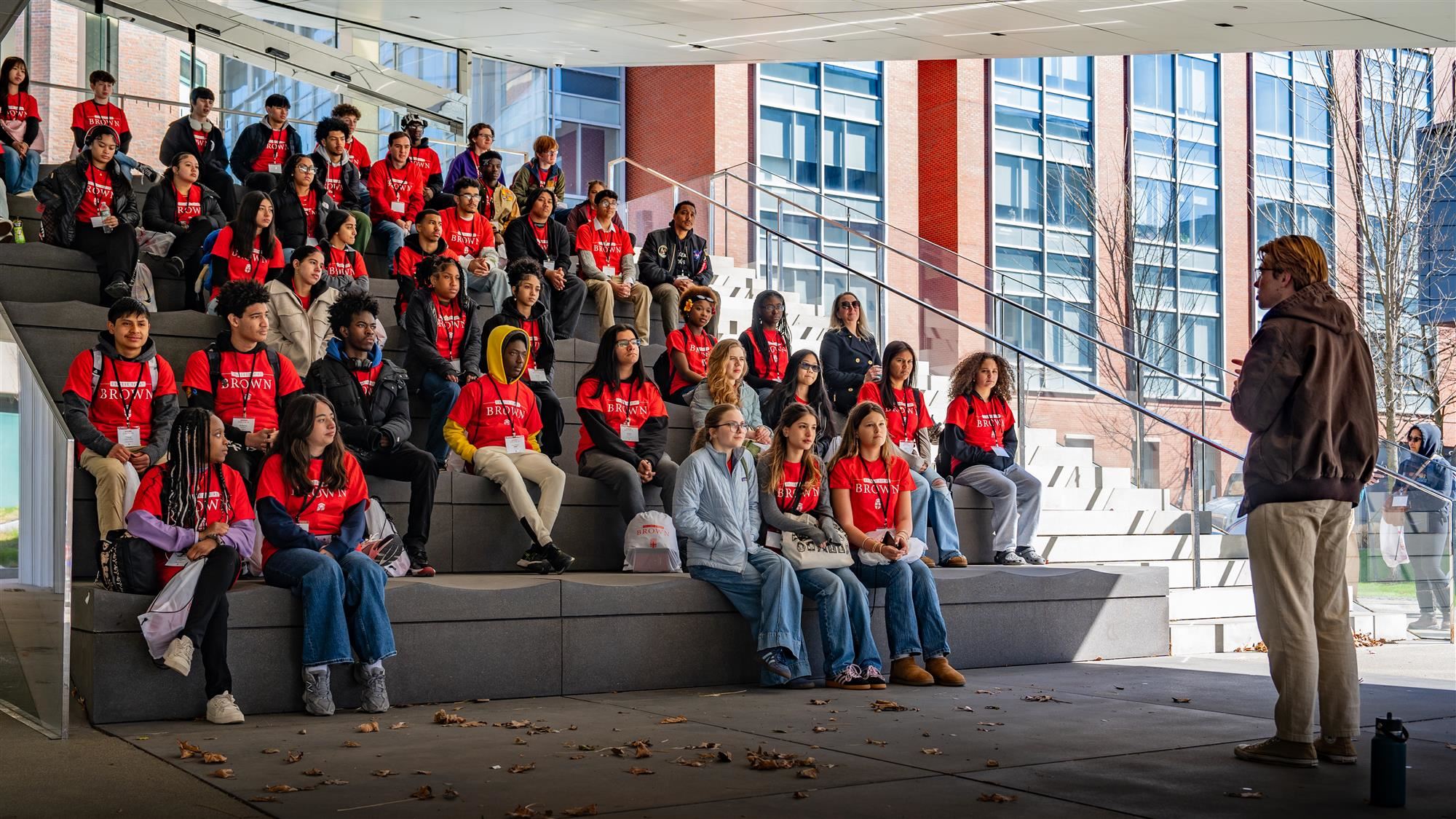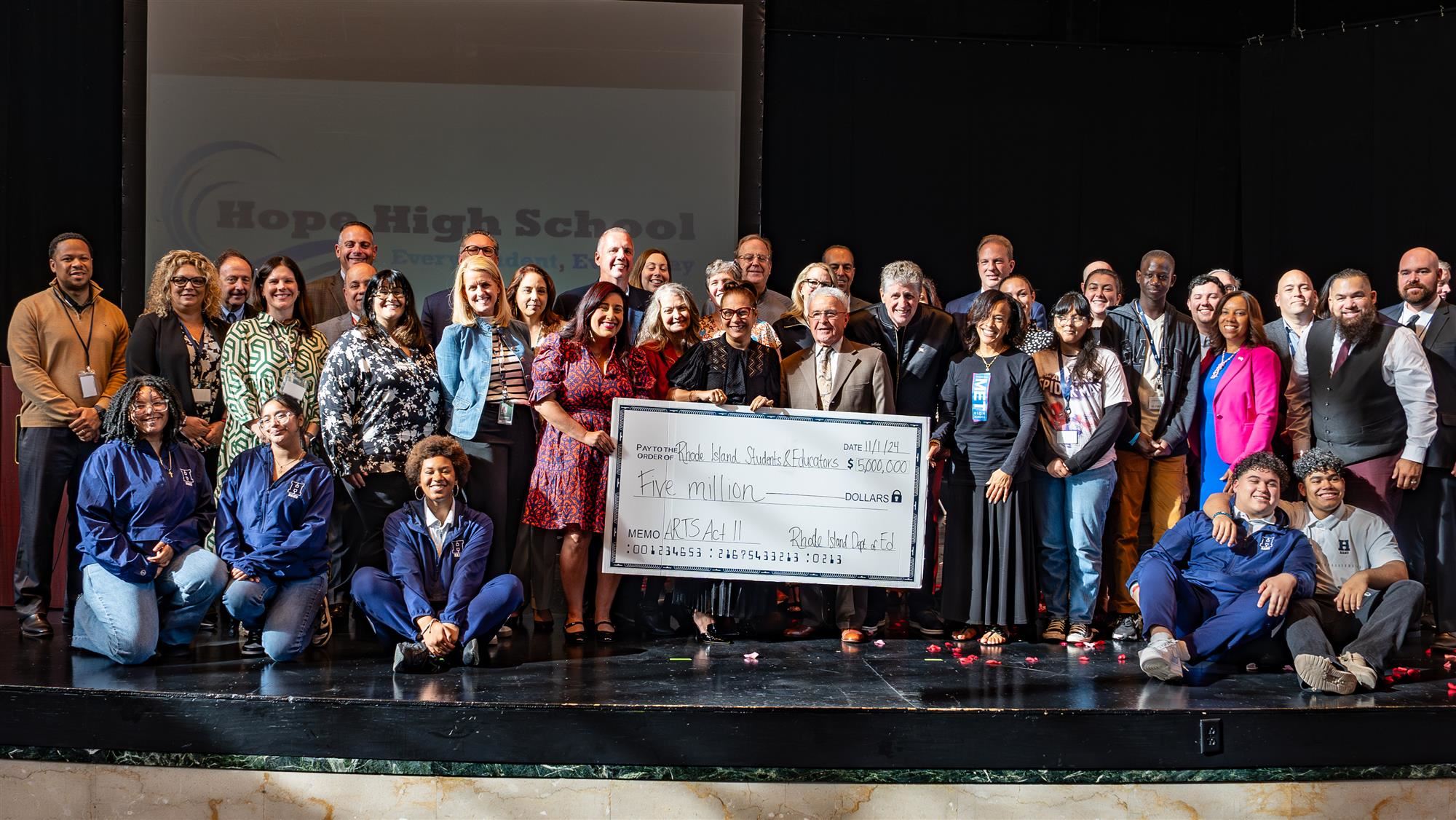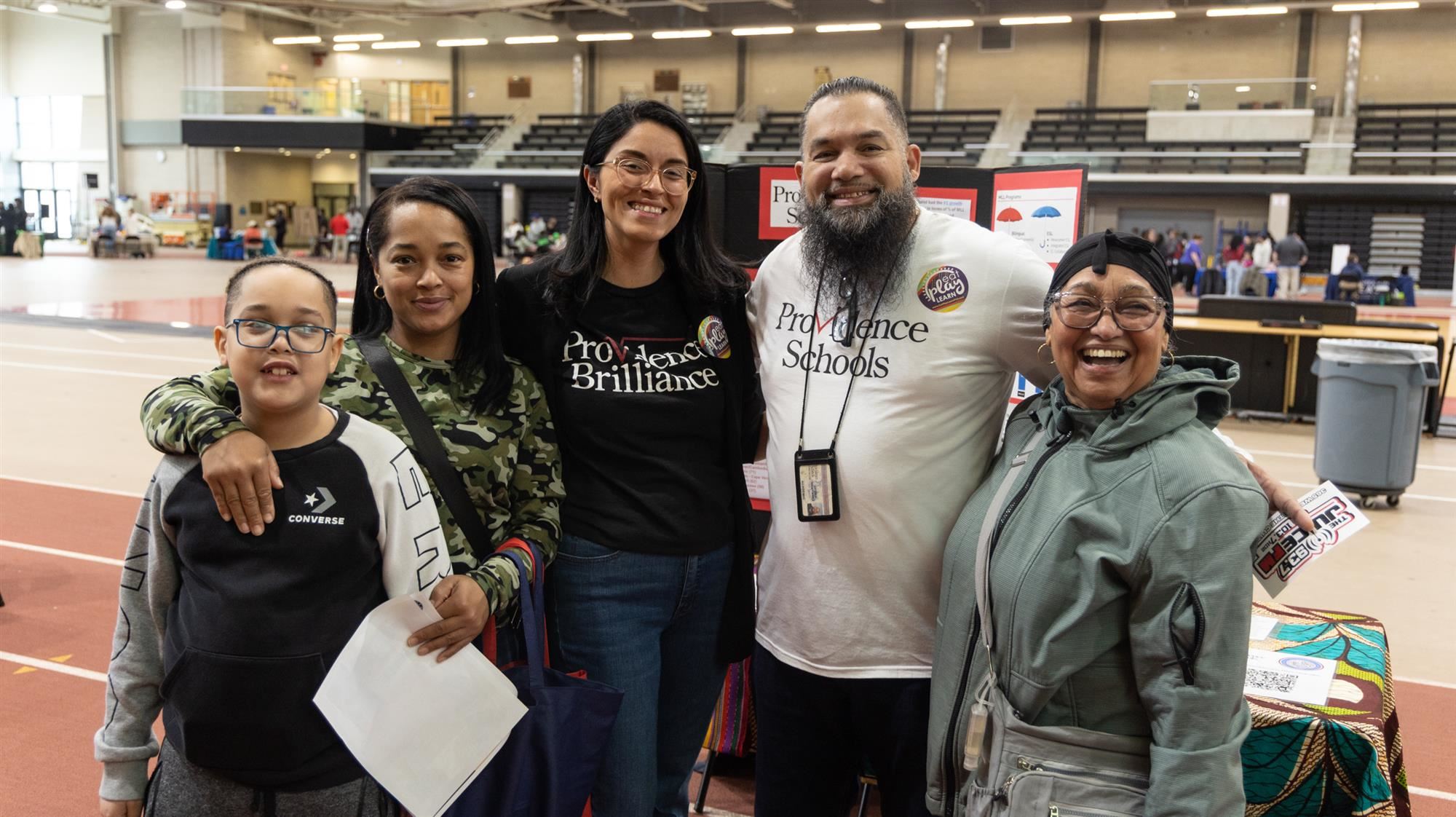- Providence's Turnaround Action Plan
- Engaged Communities
Engaged Communities
-

Engaged Communities: Supporting Students Beyond the Classroom
 What is the Engaged Communities pillar?
What is the Engaged Communities pillar? Transparent and authentic family and community engagement initiatives that respond to the unique needs of students and families will be implemented District-wide. Consistent, culturally sensitive communications from schools and the District will be required.
Where We Started
Before the turnaround, the district lacked a cohesive vision for family engagement. Efforts to connect with families were fragmented and inconsistent across schools, and there was no formal district-wide office to lead this work. Parents didn’t have structured representation in decision-making, and while some student groups existed at individual schools, there were no district-level student advisory bodies.
Support for students experiencing housing instability was limited, with funding available only through Title I, and there was no centralized system for families to get help quickly—they had to reach out to departments individually. While a volunteer policy existed, participation was extremely low, and outreach efforts lacked coordination. In-person conferences were the norm, often with limited accessibility for working families. Simply put, the district had no unified approach to family and community partnerships.
 Where We Are Now
Where We Are NowSince launching the Family and Community Engagement (FACE) office, we've transformed the way we connect with families. FACE now includes Parent Engagement Specialists who support schools and work directly with families. We’ve established a District-Wide Advisory Council (DWAC), a Parent Advisory Council (PAC), and a Student Advisory Council (SAC)—ensuring that family and student voices are meaningfully included in district planning.
Thanks to funding from the Education of Homeless Children program, FACE now provides wraparound support for students experiencing housing instability, including school supplies, hygiene products, transportation, summer program access, and more. The creation of a centralized Rapid Response Team means that family inquiries are now answered within 24 hours over 90% of the time.
We’ve also launched the Community Leaders Gathering, where local leaders from nonprofit, faith, business, and healthcare sectors come together with district leaders to collaborate on improving student outcomes. Partnerships are now aligned to district goals and include clear metrics. Our volunteer program has expanded dramatically—from just 55 volunteers in 2018–2019 to nearly 400 in 2023–2024—thanks to a more efficient background check process and updated policies.
Family engagement sessions are now offered both in-person and virtually, and participation continues to grow. We’ve expanded our outreach through TV, radio, and social media in multiple languages, and launched a parent leadership program that includes workshops, site visits, and stipends.
What’s Next
Looking ahead, the district is working to expand the FACE team, offer ongoing professional development, and increase outreach efforts across all communities. We aim to increase parent participation, improve communication channels, and further align our work with district policies.
We’re expanding leadership training opportunities for both parents and students, ensuring that multilingual learners, students with disabilities, and students in alternative education settings are well represented. More community presentations, multilingual listening sessions, and a new FACE media campaign are on the way.
To support families in transition, we’re strengthening community partnerships, launching thematic gatherings tied to district priorities, and building deeper relationships with emerging organizations, small businesses, advocacy groups, and faith-based institutions.
As part of our continuous improvement efforts, we’re formalizing onboarding for partners, developing a district-wide partner directory, enhancing contract metrics, and expanding volunteer recognition. The FACE office will also continue to broaden session offerings, increase digital engagement, and ensure that family and community engagement remains a cornerstone of student success in Providence.

